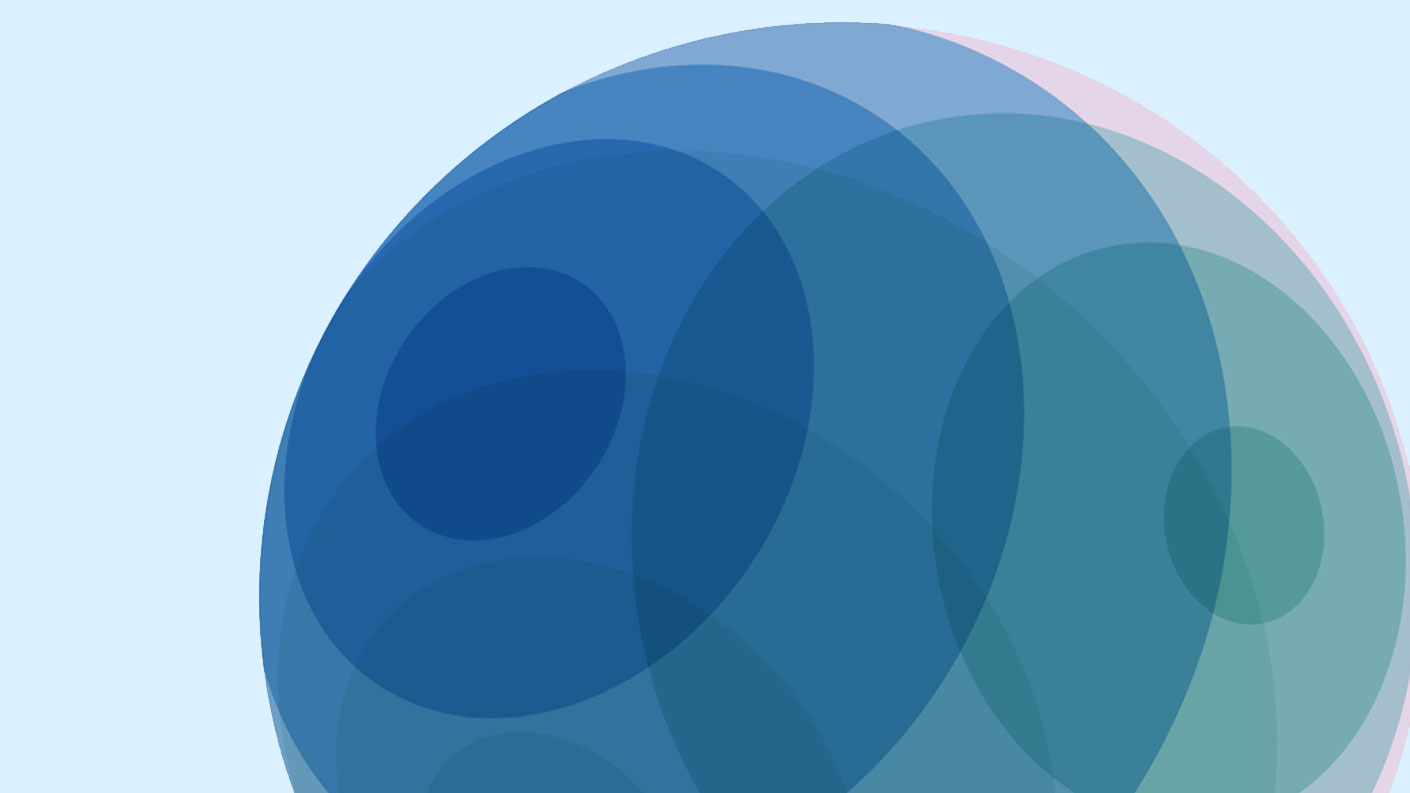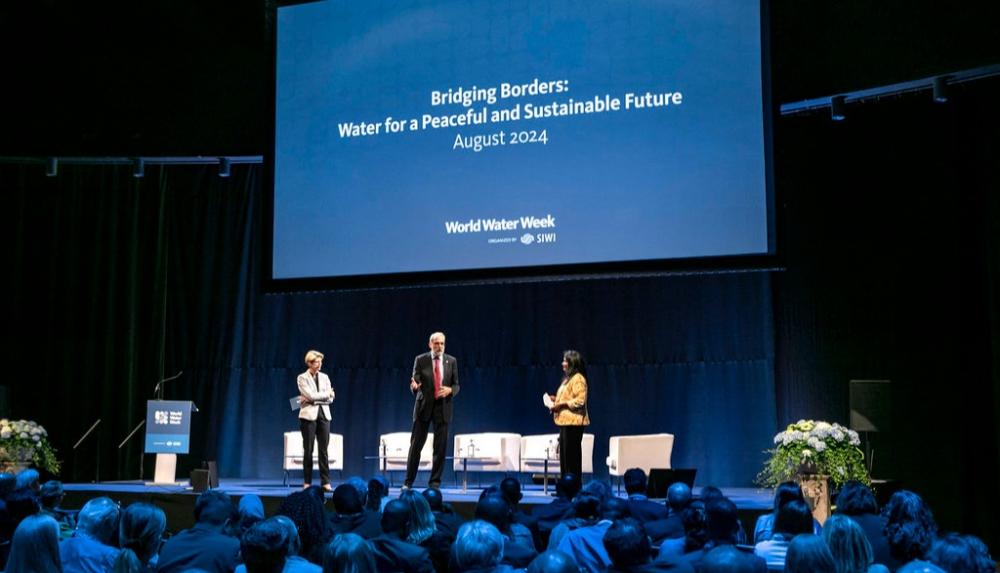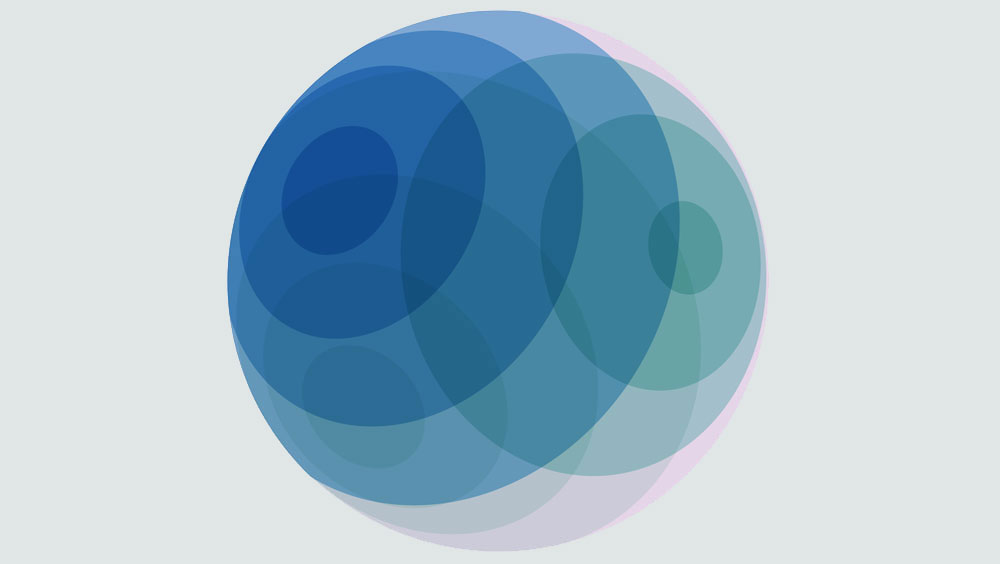Democracy and peace

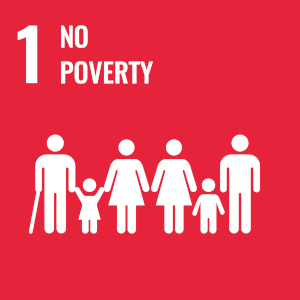
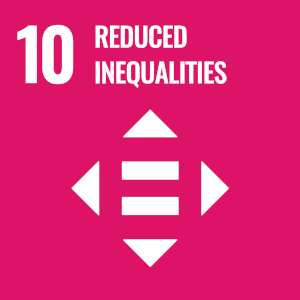
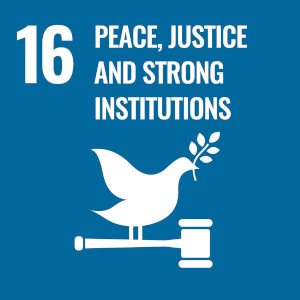

The COVID-19 pandemic has further weakened democracy
A functioning democracy and rule of law are prerequisites for sustainable development. In democracies, the participation of citizens in decision-making is safeguarded, economic development is stable and environmental protection is more extensive.
Citizens around the world long for opportunities to participate and make their own voice heard. This has been recently illustrated by large demonstrations demanding democracy in authoritarian countries such as Belarus, Myanmar and Cuba.
Despite the demonstrations, global democratisation has been declining for a long time, and the COVID-19 pandemic has caused the situation to further decline. The last time the indicators of democracy were as low as they are now, was in 1989. Only thirty per cent of the world's population still live in a democratic country.
Civil space is also shrinking. Almost two billion people live in a country where civil society cannot function freely.
What is positive is that women’s political participation has increased. The share of women MPs worldwide doubled from 11 per cent to 22 per cent between 1995 and 2015. By the beginning of 2022, this figure had increased to 26 per cent.
Developing countries do not have sufficient resources to bridge inequalities and develop public services and infrastructure. Their tax systems are often ineffective and most of the workforce and businesses operate in an informal economy. Taxes collected in low-income countries account for only 13 per cent of gross national income, compared with over 23 per cent in high-income countries.
In 2021, there were ongoing wars or armed conflicts in 46 countries. Some 150,000 people were killed in these conflicts, which is 13 per cent more than in the previous year. Current conflicts are complex and multidimensional. The number of conflicts between non-governmental actors has more than doubled since 2010.
Almost all of Finland's key partner countries are so-called fragile states and regions. These include Ethiopia, Somalia, Mozambique, Syria, Iraq, the Occupied Palestinian Territory, Myanmar and Afghanistan. Finland's long-term partner country Nepal managed to transition away from the category of the most fragile countries in 2020.
Finland supports civil society
Finland improves public services
Finland strengthens peace processes
Finland's broad concept of democracy
The Rule of Law Centre brings together the sector’s actors
Finland supports human rights defenders
Kenyan provincial administrations improved their services
Demo Finland supported dialogue between political parties in developing countries
Democracy and the development of rule of law
Finland reinforces the pluralism of societies: with Finnish support, women and civil society have been included in societal decision-making.
Finland promotes the implementation of fundamental and human rights, democracy and the rule of law as an integral part of foreign policy. Work on these themes is implemented nationally, at the EU level and internationally.
In recent years, Finnish democracy work has focused on safeguarding the political participation of women and the work and operating conditions of civil society. In 2019-2021, UN Women has supported the participation of nearly 24,500 women leaders and candidates in political life. In Tanzania, as a result of cooperation between Finland and UN Women, female parliamentarians have received the courage to bring forward important issues related to gender equality in Parliament.
With the help of work by civil society, Finland has improved not only people's opportunities to participate but also Finland's other objectives, such as the promotion of gender equality and non-discrimination. Many Finnish civil society organisations are carrying out important work to defend human rights, civil society space and freedom of expression. Finland places particular emphasis on the pluralism of civil society organisations.
For example, in 2021, 159 organisations of persons with disabilities in developing countries were assisted through Disability Partnership Finland, which represents eight Finnish organisations of persons with disabilities, and the Abilis Foundation established by persons with disabilities. Of these, 14 were organisations founded by women with disabilities and organisations promoting the equality of women and girls. This support has promoted the work of disability activists in developing countries and their ability to demand their rights. Participation in politics by persons with disabilities is essential for non-discrimination to become a reality.
Finland also supports democratisation through other international actors, such as International IDEA, the Institute for Democracy and Electoral Assistance. In Myanmar, Finland and International IDEA have worked together to strengthen the expertise of different parties and organisations on the interlinkages between the Constitution, peace and the division of powers. This expertise will be needed when power is transferred to a civilian administration in due course.
In recent years, strengthening of legal systems and supporting freedom of the press have played a smaller role in Finland's democracy work as a whole. Even so, Finland has carried out long-term work, for instance, in Kyrgyzstan and Tajikistan that have succeeded in strengthening the structures of their national legal aid systems, while increasing the accessibility and quality of legal aid services.
Finland's strong international support to democracy was also manifested during its EU Presidency in 2019, when the EU Council adopted its conclusions on democracy and renewed its commitment to democracy. Following on from these, a new EU Action Plan on Human Rights and Democracy was published in 2020, which also emphasises the role of the rule of law and international cooperation.
Results of democracy and the rule of law work in 2019-2021
With Finland’s support
3 600 civil society organisations from developing countries promoted themes important to Finland35
170 000 public or elected officials strengthened their skills in public administration36
5 705 000 people, 57% of whom were women, received legal aid37
68 000 human rights defenders, journalists and trade union activists were able to continue their work38
Fair and effective taxation
The expansion of the tax base has provided additional resources to developing countries with which to develop society.
Fair and effective taxation helps developing countries to finance their public services and expenditure, to provide more equal services and to combat corruption. For example, the Finnish Tax Administration has provided expert assistance to Tanzania’s Tax Administration. The pilot project, which improved the efficiency of tax audits, increased the capital city's taxable income by up to 15 per cent. These additional funds can be used to finance health care, education and road construction.
In 2021, Finland’s Ministry for Foreign Affairs published the tax responsibility principles, which aim to ensure that companies supported by development cooperation funds operate in a tax-responsible manner. Kehitysrahoittaja Finnfund, a development financier, reformed its own tax policy(Link to another website.) already in 2018. On the basis of the policy, Finnfund assesses that the company follows responsible tax practices before funding decisions are made, ensuring that conditions related to responsible taxation and reporting are included in funding agreements.
The number of registered taxpayers increased in 12 countries where the World Bank has tax programmes. Finland supports the activities of the World Bank.
More tax revenue for developing countries
A stronger role for women in peace processes
Finland helps victims of conflicts
Finland has supported the International Criminal Court’s Trust Fund for Victims since 2004. In recent years, support has focused on helping victims of sexual and gender based violence. In 2020, the Trust Fund for Victims supported 1,105 peace-building events in Uganda and the Democratic Republic of the Congo. These brought together a total of nearly 20,000 people. The aim of the events was to prevent the emergence of new violence by addressing the underlying causes behind past grievances.
Finland supports the implementation of accountability
Peacebuilding
In particular, Finland has strengthened the participation of women and young people in peace processes. Broad participation contributes to achieving lasting peace.
Finland's conflict resolution work is implemented bilaterally, as a member of the European Union and by supporting the efforts of the UN and regional organisations, such as the African Union.
In Somalia, Finland provides financing for the reconstruction of the country after its prolonged conflict. With Finland’s support, the social agreement between citizens and the state has been strengthened and a plan for Somalia’s national reconciliation process has been formed. In 2021, nearly one hundred groups trained with Finnish assistance participated in reconciliation processes and civil dialogue in local communities. The participants included women’s and young people’s groups as well as traditional religious leaders.
In Myanmar, Finland has assisted peacebuilding to resolve the country's civil war which has lasted for over 70 years through the Joint Peace Fund, the Finnish Evangelical Lutheran Mission and Crisis Management Initiative. Finnish support has improved trust, willingness to negotiate and engagement in dialogue between the parties. The official peace process was terminated as a result of the 2021 coup d'état, but unofficial negotiations have managed to reconcile tensions locally without violence. The participation of women and young people has been supported throughout the process. In 2021, 37 per cent of those who participated in various negotiations supported by the Peace Facility were women.
In Myanmar, Finland has supported the second phase of the Women and Girls First Programme. The programme, which is implemented in the conflict areas, offers support for victims of gender-based violence. In 2021 the programme reached 110 000 girls, women and men.
Finland acts in the Palestinian Territory together with the European Commission Civil Protection and Humanitarian Aid Operations department ECHO and ten EU countries. Finland finances a programme that addresses the humanitarian protection needs and strengthens the conditions for development of Palestinian communities in Israeli-controlled Area C. The programme has managed to prevent destruction of Palestinian infrastructure and human rights violations. Nearly 50,000 people benefited from the programme in 2020.
The equality perspective emphasised by Finland is also realised in cooperation with international organisations. In 2019-2021, UN Women used Finnish assistance to support 26 countries in the preparation of the 1325 National Action Plans. The programme facilitates the implementation of the UN Security Council Resolution 1325 on Women, Peace and Security.
Finland has assisted the African Union from 2009 onwards by training mediators and setting up the Union's mediation support unit and FemWise-Africa, the Network of African Women in Conflict Prevention and Mediation. Finland also supports the work of the UN Team of Experts on Rule of Law and Sexual Violence in Conflict in combating sexual violence in armed conflicts. Thanks to the work of the UN Team of Experts on Rule of Law and Sexual Violence in Conflict, the promotion of accountability in cases of conflict related sexual violence was incorporated into eight UN peacekeeping missions.
In 2019–2021, Finnish support ensured that 6,78 km2 an area equivalent to 970 UEFA-standard football fields, were cleared of mines.41
Peace processes supported by Finland
In 2019-2021, Finland supported inclusive peace processes in 20 countries affected by violent conflicts. Peace building activities have been implemented by Finnish civil society organisations, such as the Crisis Management Initiative, Finn Church Aid and the Finnish Evangelical Lutheran Mission.40
- 1
United Nations (2021). The Sustainable Development Goals Report 2021. https://unstats.un.org/sdgs/report/2021/(Link to another website.)
- 2
World Bank (2022). Pandemic, Prices and Poverty.
https://blogs.worldbank.org/opendata/pandemic-prices-and-poverty(Link to another website.) Referenced on 4.10.2022. - 3
World Bank (2022). World Development Indicators. Foreign direct investment, net inflows (BoP, current US$), personal remittances, received (current US$), net official development assistance received (current US$). DataBank. https://databank.worldbank.org/(Link to another website.) Referenced on 6.7.2022.
- 4
Finnish civil society organisations, including World Vision Finland, the International Solidarity Foundation and FIDA as part of the broader SRHR communication work and the results achieved by UNFPA with support from Finland.
- 5
UNESCO Institute for Statistics (2022). Completion rate, lower secondary, female %. http://sdg4-data.uis.unesco.org/(Link to another website.) Referenced on 4.10.2022.
- 6
The data was collected from aggregate indicator 'Number of teachers who received pre or in service training' from the following interventions: HEI-ICI programme, projects and programmes coordinated by the Finnish Bible Society, Wycliff, Finn Church Aid, FIDA, the Finnish Refugee Council, Disability Partnership Finland and Taksvärkki.
- 7
Finnish civil society organisations, including World Vision Finland, the International Solidarity Foundation and FIDA as part of the broader SRHR communication work and the results achieved by UNFPA with support from Finland.
- 8
The data was collected from aggregate indicator 'Number of teachers who received pre or in service training' from the following interventions: bilat¬eral assistance and sector programmes in Nepal, Ethiopia, Mozambique, Myanmar, Palestinian Territories and Ukraine, as well as from UNESCO’s Capacity Building for Education programme.
- 9
The data was collected from aggregate indicator 'Number of teachers who received pre or in service training' from the following interventions: HEIICI programme, projects and programmes coordinated by the Finnish Bible Society, Wycliff, Finn Church Aid, FIDA, the Finnish Refugee Council, Disability Partnership Finland and Taksvärkki.
- 10
The data was collected from aggregate indicator 'Number of teachers who received pre or in service training' from the following interventions: bilateral assistance and sector programmes in Nepal, Ethiopia, Mozambique, Myanmar, Palestinian Territories and Ukraine, as well as from UNESCO’s Capacity Building for Education programme.
- 11
Participating countries include those supported through UNESCO's CAP Ed programme and Finland's bilateral cooperation partner countries, where Finland supports structural reforms of the school system.
- 12
The data was collected from aggregate indicator 'Number of educational institutions whose capacity has been strengthened' (schools) from inter¬ventions in the following countries: Nepal, Myanmar (Sector Programme and Education Support to promote education in Ethnic Regions), Ethiopia and Ukraine.
- 13
The data was collected from aggregate indicator 'Number of educational institutions whose capacity has been strengthened' (schools) from the following interventions: Wycliffe, Finn Church Aid, Finnish Refugee Coun¬cil, Taksvärkki, FIDA, Disability Partnership Finland, World Vision, Finn¬partnership and Finnfund.
- 14
The data was collected from aggregate indicator 'number of educational institutions whose capacity has been strengthened' (teacher education institutions) from the following interventions: Myanmar/UNESCO, Mozambique/FASE, Ukraine/basic education project, HEI-ICI programme and E-tale Africa project.
- 15
This figure includes pupils assisted through country and regional cooper¬ation, humanitarian assistance and multilateral cooperation in projects in Ethiopia, Lebanon, Syria, Myanmar, Iraq, including Finland's compu¬tational share of support to UNRWA and ECW. Pupils reached by civil soci¬ety organisations have been reported separately as a whole.
- 16
Data collected on aggregate indicators' number of students enrolled in education '(vocational and non-formal) and' number of women and girls with disabilities who have access to vocational training 'from projects and programmes by the following organisations: Finnish Refugee Council, FIDA, the Abilis Foundation, Disability Partnership Finland.
- 17
The data was collected from aggregate indicator 'Number of students enrolled in education' (pre-primary, primary, secondary) from projects and programmes by the following organisations: Finn Church Aid, FIDA, Wycliffe.
- 18
The data was collected from aggregate indicator ‘number of students enrolled in education’ (vocational and non-formal) and ‘number of women and girls with disabilities who have access to vocational training’ from projects and programmes by the following organisations: Finn Church Aid, Finnish Refugee Council, SOS Children's Villages, Disability Partnership Finland, Finnish Bible Society, Taksvärkki ODW Finland, The Abilis Foundation, The Finnish Foundation for Media and Development.
- 19
The data was collected from aggregate indicator 'Number of students enrolled in education' (pre-primary, primary, secondary, vocational). This figure was calculated on the basis of the most recent pre-pandemic sta¬tistics on student number in Finland's bilateral cooperation partner coun¬tries: Nepal, Afghanistan, Myanmar, Palestine, Mozambique, Ukraine and Ethiopia.
- 20
The data was collected from the aggregate indicator ‘Number of proposals for laws and policies that improve business environment and regional economic integration’. The results are the figures reported by the UN Industrial Development Organization UNIDO in 2019-2021. Finland is a UNIDO member state and pays a statutory membership fee annually.
- 21
Jobs and companies in developing countries have also been supported through other cooperation, but the figures reported by all supported actors do not fall under the indicators monitored by the Ministry for Foreign Affairs.
- 22
Multilateral cooperation: The data was collected from the aggregate indicator 'Number of full-time (or equivalent) jobs assisted or created' from the following actors: UN Industrial Development Organization UNIDO, 2019-2021; European Development Fund, 2019-2020.
- 23
The data was collected from aggregate indicator 'Number of full-time (or equivalent) jobs supported or created' and includes the Energy and Environment Partnership’s (EEP) support 2020-2021 and the Inter-American Development Bank’s (IADB) general support 2020-2021.
- 24
The data was collected from the aggregate indicator 'Number of full-time (or equivalent) jobs assisted or created' from the following projects: AgroBIG II, Assistance for agro-driven economic growth in Amhara, Ethiopia (2019-2021); AGS Zambia, Assistance for SME growth in Zambia (2021) and SAIS, Southern Africa Innovation Support Programme (2021).
- 25
The data was collected from the aggregate indicator 'Number of full-time (or equivalent) jobs assisted or created' from the following actors: Finnpartnership, 2019-201; FCA Investments, 2019-2021 and Finnfund, 2019-2020.
- 26
The data was collected from the aggregate indicator 'Number of full-time (or equivalent) jobs assisted or created' from the following projects: HALO Trust, 2019-2020; International Solidarity Foundation, 2019-2021; Finn Church Aid, 2019-2021; Fairtrade, 2020-2021.
- 27
The data was collected from the aggregate indicator ‘Number of micro, small and medium-sized enterprises in developing countries benefiting from business development services, including innovation support ser¬vices, responsible business practices and financing supporting improved or growing business’.International Fund for Agricultural Development IFAD, 2019; UN Industrial Development Organization UNIDO, 2021; Euro¬pean Development Fund, 2019-2020; International Development Associ¬ation IDA, 2020-2021; International Trade Centre ITC, 2019-2021.
- 28
The data was collected from the aggregate indicator ‘Number of micro, small and medium-sized enterprises in developing countries benefiting from business development services, including innovation support services, responsible business practices and financing supporting improved or growing business’ from the following actors: European Bank for Reconstruction and Development (EBRD), 2020; Asian Development Bank (ADB), 2019-2020; African Development Bank (AfDB), 2020; Inter-American (IADB), 2020-2021.
- 29
The data was collected from the aggregate indicator 'Number of MSMEs in developing countries benefiting from business development services, including innovation support services, and responsible business prac¬tices and funding for business improvement or growth', from the follow¬ing projects: Forestry and value chain development, Tanzania, 2019- 2020; AGS Zambia, Support for growth of Zambian SMEs, 2020-2021.
- 30
The data was collected from the aggregate indicator ‘Number of micro, small and medium-sized enterprises in developing countries benefiting from business development services, including innovation support services, responsible business practices and financing supporting improved or growing business’ from the following actors: Finnfund, 2019-2020; FCA Investments, 2019-2021, DevPlat, 2020-2021.
- 31
The data was collected from the aggregate indicator 'Number of MSMEs in developing countries benefiting from business development services, including innovation support services, and responsible business practices and funding for business improvement or growth', from the following projects: Project Support, SOS Child Village, Ethiopia, Gambia, Tanzania, 2020; Programme Support, International Solidarity Foundation, 2020-2021; Programme Support, Finn Church Aid, 2020-2021; Programme Support, WWF, 2019-2021; Programme Support, Plan Finland, 2019-2021; Programme Support, Finnish Refugee Council, 2019-2020; Programme Support, World Vision Finland 2020-2021.
- 32
The data was collected from the Ministry for Foreign Affairs aggregate indicator ‘Number of Science, Technology and Innovation (STI) partnerships with education and research institutions and private sector actors’ from the reports of the following projects and actors: Southern Africa Innovation Support Programme, Finnpartnership, BEAM/Developing Markets Platform, Plan Finland, HEI-ICI.
- 33
The data was collected from aggregate indicator 'Number of enterprises trained on decent work standards and/or responsible business practices', from reports by the following projects and actors: Finnish Refugee Council, Southern Africa Innovation Support Programme, Finnpartnership business partnership programme, supporting the growth of Zambian SMEs, Fairtrade, Evaluation of interest-subsidy projects, Finnwatch. The number of trained companies is calculated annually. It is possible that the same company will appear in the figures for several years.
- 34
Un Women Global Output Indicator 2.4.2. 2019 result 5,964, 2020 result 6,808 and 2021 result 11,597. https://www.unwomen.org/en/executive-board/strategic-plan/outcome-area-2
- 35
Project support, Deaconess Institute in Helsinki, Europe/Romaninaisten voimaa - Romanina (2020); Project support, Deaconess Institute in Helsinki, KOSOVO//Eteenpäin elämässä (EqE) (2020); Project Support, Children and Youth Foundation, SEN/Naatange art la (2020); Project Support, SOS Child Village Foundation, TAN/Women's and Children's Rights, Mufindi (2020); Project Support, Finnish YMCA, LIB/Syyrialaisten pakolaisten amk (2020); Project Support, Interpedia, NEP/Haavoittuvassa asemassa olevat lapset (2021); Support for International Non-governmental Organisations (INGO), Hivos (2020); Support for International Non-governmental Organisations (INGO), International Lesbian Gay Bisexual Trans and Intersex Association (ILGA) (2019); Support for International Non-governmental Organisations (INGO) joint application round, International Service for Human Rights (2020); Support for International Non-governmental Organisations (INGO), World Organisation against Torture (2021); Other multilateral help, Justice Rapid Response (2020); Programme support, Abilis Foundation (2021); Programme support, Fida International (2021); Programme support, Finnish Red Cross (2019); Programme support, International Solidarity Foundation (2021); Programme support, KiOS Foundation (2021); Programme support, Finn Church Aid (2021); Programme support, World Wildlife Fund (WWF) Finland’s Fund (2021); Programme support, Plan Finland Foundation (2019); Programme support, Fairtrade (2021); Programme support, Siemenpuu Foundation for civil society (2021); Programme support, Trade Union Solidarity Centre of Finland SASK (2020); Programme support, Finnish Evangelical Lutheran Mission (2020); Programme support Finnish Refugee Council (2019, 2020, 2021); Programme support, World Vision Finland (2021); Programme support, Taksvärkki (2021); Programme support, Disability Partnership Finland (2020); United Nations Alliance of Civilizations, ARFICA/Projects coordinated by youth funds, programming period 2019-2020.As the programme/project assistance organisation partnerships usually last throughout a project/programme period, the number of organisations supported in partner countries has been calculated by including only the year for which the highest result has been reported. The sum of the results for different years are only added together for those organisations where it has been explicitly mentioned that partner organisations are not the same.
- 36
BI Cofinancing programme UN University, MOZ/MPD-UEM Policy Research (2020); ICI cooperation Finnish Forest Research Institute TAN/IKI/LUKE INFORES (2019); Bilateral project, DEMO Finland, MOZ/ DEMO Strengthening Parliament (2020/2021); Bilateral project, Netherlands Institute for Multiparty Democracy: MOZ/Natural resources governance (2019); Bilateral project, TAN/PFP 2 (2020); Asian Development Fund, Additional funding, AsDF-13 (2021), Asian Development Fund, Additional funding, AsDF-12 (2019, 2020); UN University MOZ/UNU-WIDER IGM II (2021); Thematic assistance, UN Educational Scientific and Cultural Organization, UNESCO (2019, 2020).
- 37
UN Development Programme, KGZ/Legal sector support project (2019, 2020); UN Development Programme, TJK/Legal sector support project (2019, 2020); KiOS, programme assistance (2019, 2020, 2021); Finnwatch, project assistance, THA/burmalaiset siirtotyöntekijät voimaantuneet (2020); European Development Fund, additional funding (2019, 2020); UN Women, general funding (2019, 2020, 2021). Disaggregation has only been calculated from the results for which disaggregated data has been available.
- 38
Support for International Non-governmental Organisations (INGO), Hivos (2019, 2020); Support for International Non-governmental Organisations (INGO), DefendDefenders, East and Horn of Africa Human Rights Defenders Project (2020, 2021); Support for International Non-governmental Organisations (INGO), International Commission of Jurists (2019, 2020); Support for International Non-governmental Organisations (INGO), International Lesbian Gay Bisexual Trans and Intersex Association (2019, 2020); Support for International Non-governmental Organisations (INGO), International Service for Human Rights (2020, 2021); Support for International Non-governmental Organisations (INGO), Minority Rights Group International (2020); Support for International Non-governmental Organisations (INGO), World Organisation against Torture (2019, 2020, 2021); Programme support, KiOS Foundation (2019, 2020, 2021); Programme support, Trade Union Solidarity Centre of Finland SASK (2019, 2020, 2021); Embassy of Finland, MDA/IJC/Media literacy, Moldova (2020); Embassy of Finland, MDA/SP/media support, Moldova (2020).
- 39
In 2018, the Action Plan had been drawn up in 60 countries, while at the end of 2021 the number was up to 86 countries. Un Women https://www. unwomen.org/en/executive-board/strategic-plan/outcome-area-5.
- 40
In addition, community-level peace-building is carried out by Fida International, World Vision, Save the Children, the Deaconess Foundation (reconciliation project) and the YMCA Finland (2250).
- 41
With Finland’s assistance, the Mines Advisory Group, Halo Trust, Danish Demining Group and the United Nations Mine Action Service have cleared 6.78 km2 of mines.
- 42
The data was collected from the following civil society organisations: Finnish Red Cross, 2019-2021, and World Vision Finland, 2020-2021.
- 43
The data was collected from the following civil society organisations: Finnish Red Cross, 2019-2020, and World Vision Finland, 2020-2021.
- 44
The data was collected from the following civil society organisations: Fida International, 2019-2021, and World Vision Finland, 2020-2021.
- 45
The data was collected from the following projects: Community led Accelerated WASH in Ethiopia, Ethiopia, 2019-2020; Support to equitable access to quality water, basic sanitation and enhanced water resources management for the underserved communities in rural Kenya, Kenia, 2019-2020; Rural Village Water Resources Management Project Phase III, Nepal, 2019-2021; Rural Water Supply and Sanitation Project in Western Nepal Phase II, Nepal, 2019; UNICEF ONE WASH, Nepal, 2020-2021; WASH in Schools UNICEF, Afghanistan, 2019-2021.
- 46
Data kerätty seuraavista hankkeista: Support to equitable access to quality water, basic sanitation and enhanced water resources management for the underserved communities in rural Kenya, Kenia, 2019-2020; Rural Water Supply and Sanitation Project in Western Nepal Phase II, Nepal, 2019; UNICEF ONE WASH, Nepal, 2020-2021; WASH in Schools UNICEF, Afganistan, 2019-2021.
- 47
The data was collected from the following projects: Support to equitable access to quality water, basic sanitation and enhanced water resources management for the underserved communities in rural Kenya, Kenya, 2019-2020; Rural Village Water Resources Management Project Phase III, Nepal, 2020-2021; UNICEF ONE WASH, Nepal, 2020-2021.
- 48
The data was collected from the following actors: UNICEF, 2019-2021; European Regional Development Fund ERDF, new European beneficiaries, 2019-2020; World Bank/International Development Organisation IDA, 2019-2021; Asian Development Bank ADB, 2021; African Development Bank AfDB, 2019-2021.
- 49
The data was collected from the following actors: UNICEF, 2019-2021; World Bank/International Development Association IDA, 2019-2021; Asian Development Bank ADB, 2021; African Development Bank AfDB, 2019-2021.
- 50
UNICEF, UNICEF Development WASH, 2019-2021.
- 51
FAO/Forest and Farm Facility; Ecuador, Ghana, Kenya, Nepal, Tanzania, Zambia, Vietnam (2020-2021); Participatory Forestry Programme, Tanzania (2019-2021); Forestry and Value Chains Development Programme, Tanzania (2020-2021); The Alternative Development Programme in Shan State, Myanmar (2019-2020); WWF; Nepal, Bhutan, Indonesia, East-Africa (2019-2021); FIDA International (2019-2021); Finnfund (2019- 2020).
- 52
FAO/Forest and Farm Facility; Ecuador, Ghana, Kenya, Nepal, Tanzania, Zambia, Vietnam (2020-2021); WWF; Nepal, Bhutan, Indonesia, East-Africa (2019-2021), Finnfund (2019-2020), UNIDO (2019-2021); Agrobusiness Induced Growth Programme in Amhara, Ethiopia (2019-2021).
- 53
WWF; Nepal, Bhutan, Indonesia, East Africa (2019-2021); FIDA International (2019-2021); the International Solidarity Foundation (2019- 2021); Fairtrade (2020-2021); Siemenpuu Foundation; Brazil, Indonesia, India (2019-2021).
- 54
Participatory Forestry Programme, Tanzania (2019-2021); Forestry and Value Chains Development Programme, Tanzania (2020-2021); Tree Outgrower Support Programme, Tanzania (2020); The Alternative Development Programme in Shan State, Myanmar (2019-2020); Agrobusiness Induced Growth Programme in Amhara, Ethiopia (2019-2021).
- 55
FAO/Forest and Farm Facility; Ecuador, Ghana, Kenya, Nepal, Tanzania, Zambia, Vietnam (2020-2021).
- 56
Finnfund (2019-2020).
- 57
GEF Corporate Scorecard June 2021; IFAD Development Effectiveness Report 2020.
- 58
European Commission Staff Working Document. Accompanying the document ‘Report from the Commission to the European Parliament and the Council 2021’. Annual Report on the Implementation of the European Union’s External Action Instruments in 2020.
- 59
OCHA Financial Tracking Service (2021). Appeals and response plans 2021. https://fts.unocha.org/appeals/overview/2021 Referenced on 8.9.2022.
Related pages of the Foreign Ministry
